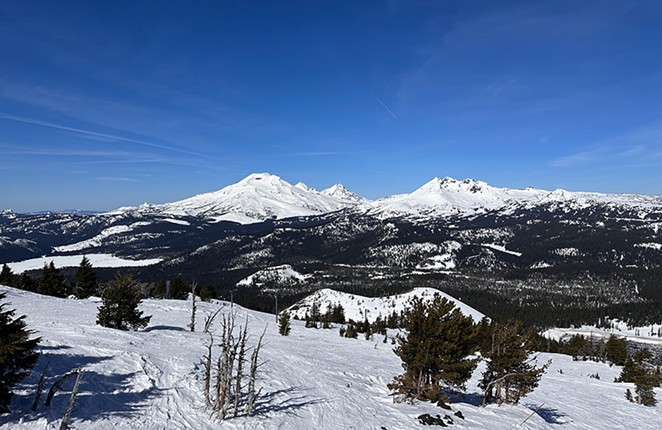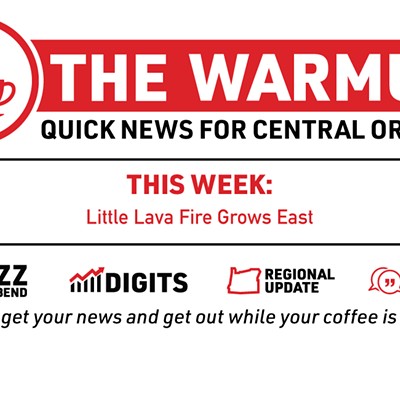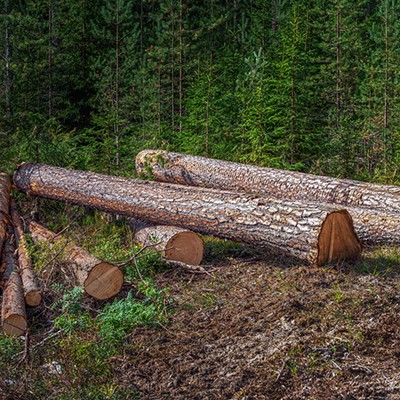The news that broke this week about the possible sale of Mt. Bachelor sent an avalanche of speculation barreling down on Bend.
Could Mt. Bachelor once again be a locals' mountain, owned by locals?
The simultaneous news that one of the other resorts owned by POWDR, Killington Ski Resort in Vermont, was purchased by a group of locals there only increased the speculation. Could that happen here?
From the perspective of a snow-rider, the Bill Healy days of local ownership meant things like free ski days, lower season pass prices and a more convivial atmosphere. From the staff perspective, it meant a more involved ownership and a less-corporate vibe. From those two perspectives, what local wouldn't want that to return?
In our community, something like this has been done before. When The Bulletin newspaper went up for sale and a hedge fund began to circle around, a group of locals did manage to bring money to the table to help usher the sale to an Oregon company instead. That was good news for those who wanted to see local control maintained for that business – but now, just five years later, that business is up for sale once again, proving that you can mount a campaign to save a local institution and keep it in local hands – but you may just find yourself mounting that campaign over and over.
It's a be-careful-what-you-wish-for type of scenario.
In the sale of Mt. Bachelor, the public doesn't know what the sale price is. Can a group of locals even afford it? It is hard to say how deep the local pockets need to be. POWDR, which has owned Mt. Bachelor since 2001, is keeping the asking price private, but we realize it is not going to be cheap. Mt. Bachelor sprawls over 4,000 acres, has 360-degree views and, as we all worry about climate change, data shows that the mountain's relatively long ski season doesn't seem to be changing all that much. Opening days for both Mt. Bachelor and Hoodoo are trending later, but season lengths have not been reduced drastically over the last 20 years. Pushing the season later into May has been the trend. In other words, a shorter ski season doesn't appear to be a major factor in this sale.
POWDR says it wants to sell Mt. Bachelor and several other resorts to "diversify" its business and focus on its National Park concessions. As a whole, the ski industry has seen massive consolidation in recent years. A number of companies have snapped up ski resorts and run them remotely. But is that model still working?
As the Storm Skiing Journal and Podcast (which first broke the news of POWDR's plans to sell the resorts) stated, "POWDR's partial sell-off - which follows the failure, dismantling, or decline of previous ski conglomerates such as American Skiing Company, Booth Creek, and Intrawest — raises questions about the long-term viability of the multi-mountain business model."
Vail Resorts, for example, runs 42 ski areas. It pays its employees more than those at Mt. Bachelor — a plus for the local lifties who currently garner somewhere around $15 an hour for their work on the mountain — but has a reputation for less-than-stellar customer service, and issues with billing and refunds, according to an alert from the Better Business Bureau. Would that be better?
It's a tough business model for resorts that are attempting to increase employee satisfaction AND make sure customers are happy, amid climbing lift prices and climate implications.
These are the big-dollar questions skiers and snowboarders in Central Oregon are pondering right now. But without knowing just how much the sale of Mt. Bachelor will set one back, it's pretty tough to glean whether a local, independent Mt. Bachelor is a reality, and one that will put the mountain on a better long-term trajectory.























